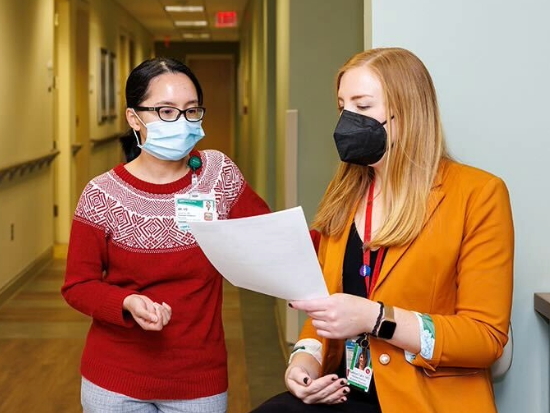 Image Source: Children's of AlabamaThe transition to adult health care is a critical time for young adults with chronic illnesses like epilepsy. This demographic often faces heightened risks, including increased emergency department visits, significant gaps in care, and higher mortality rates.
Image Source: Children's of AlabamaThe transition to adult health care is a critical time for young adults with chronic illnesses like epilepsy. This demographic often faces heightened risks, including increased emergency department visits, significant gaps in care, and higher mortality rates.
Recognizing these challenges, the American Epilepsy Society and other stakeholders advocate for a structured transition process to support young adults during this vulnerable time.
As a result, the team at the UAB Epilepsy Transition Clinic developed a standardized process to ensure continuous care and prepare young adults for life with epilepsy.
The Heersink Communications team sat with Kathryn Lalor, M.D., assistant professor in the Department of Pediatrics within the Division of Neurology/Epilepsy, and Quynh Vo, M.D., assistant professor in the Department of Neurology, to discuss the clinic’s achievements, team expansion, and efforts to improve patient care during the transition from pediatric to adult health care.
Streamlining transfer of care from Children’s of Alabama to UAB
Lalor: The clinic has implemented a streamlined referral process to ensure a smooth transition for pediatric patients. Neurologists begin by filling out a form that outlines the patient's epilepsy history and current management. This allows the clinic to triage patients effectively and direct them to the appropriate specialized clinic within UAB Epilepsy. If a different clinic would better serve a specific patient, the team can make that determination. The clinic then handles the transfer of necessary records and appointment requests. Once a patient is established with an adult provider, their pediatric chart is updated. If a patient misses an appointment or cannot be contacted, this information is relayed to their pediatric provider to prevent any gaps in care.
Addressing initial challenges during the clinic launch in 2021
Vo: The clinic faced several initial challenges, starting with transferring records between the separate Electronic Medical Record systems at Children’s of Alabama and UAB. To address this, the clinic developed a unique model where both a pediatric and adult epileptologist see each young adult with epilepsy together, providing comprehensive insights into epilepsy management and living with the condition. This innovative approach posed scheduling challenges, necessitating ongoing quality improvement efforts. Additionally, the clinic quickly became popular among pediatric neurology providers and families, leading to high referral rates and periods of long wait times.
Overcoming challenges with team expansion
Lalor: Despite facing initial challenges, our team has been fortunate to add two additional epileptologists this year. This expansion has enabled us to manage the high volume of young adults transitioning to the adult health care system promptly. It has also ensured continuous clinic coverage, regardless of physician absences or service times.
Data-driven improvements
Vo: Although there is some literature on epilepsy transition programs, there is a lack of objective data demonstrating the effectiveness of specific models or approaches. To address this, we are using a validated transition readiness questionnaire with young adults and tracking their score progress as they receive education and other assistance. While our results are not yet published, we have seen consistent improvement in scores across subsequent visits for our patient population. We have assisted approximately 150 patients in transitioning to UAB epilepsy care. We plan to publish our findings on clinic effectiveness within the year. Additionally, we have numerous ideas to further enhance the preparation of young people with epilepsy for the adult health care system and their adult lives
Enhancing independence and family support
Lalor: In addition to providing ongoing epilepsy care, our clinic emphasizes the broader aspects of living with a chronic disease. For young adults preparing to live independently, we ensure they are well-informed about their diagnosis and general healthcare knowledge, including navigating the pharmacy system, maintaining insurance coverage, and contacting their providers. For those requiring continued caregiver assistance, we support families through the disability and guardianship processes.